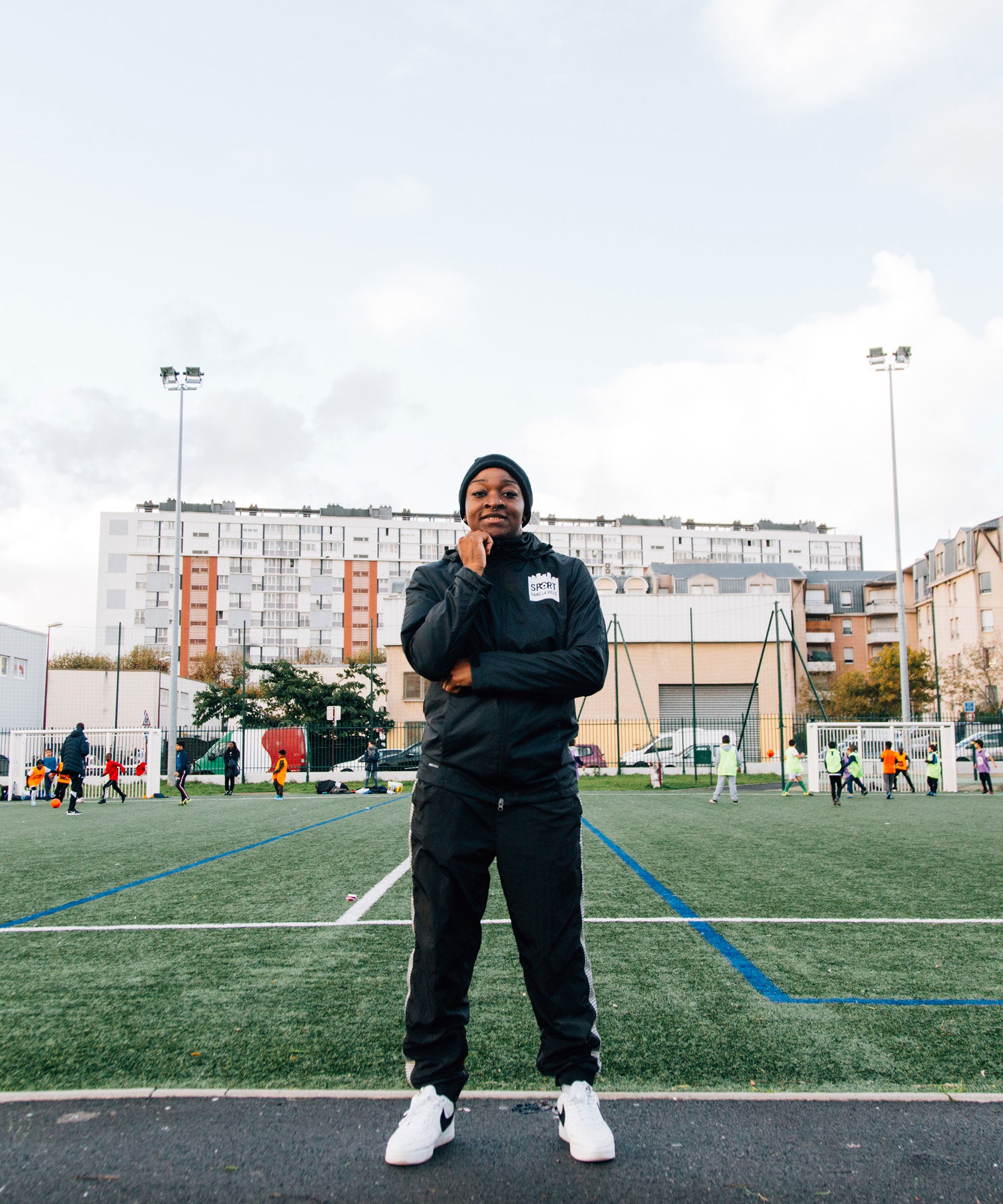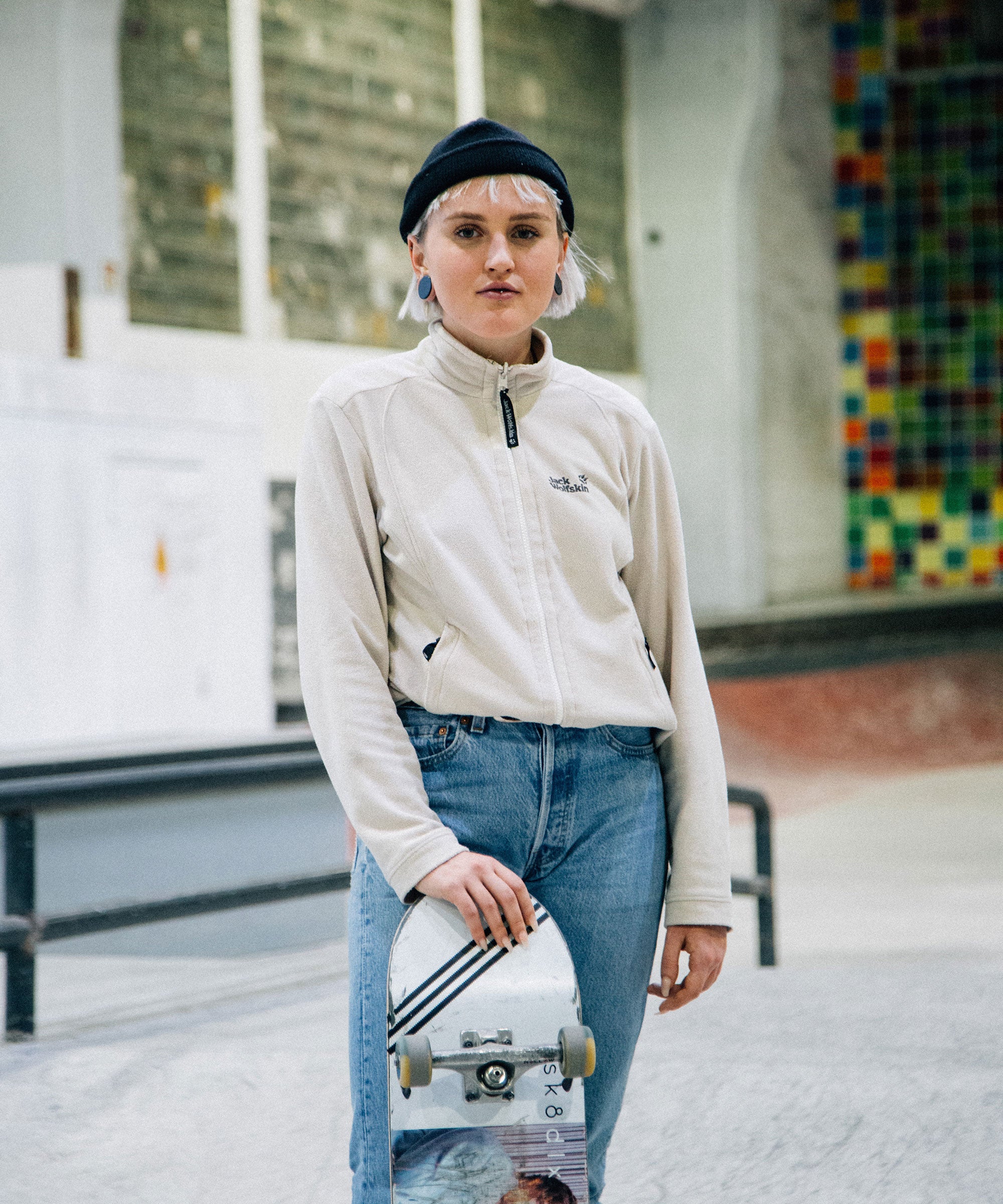Last Sunday’s International Day of the Girl (11th October) celebrated girls seeing themselves as changemakers – and acknowledged the urgent need to empower them further. When it comes to sport, Nike is changing the game. Girls are made to play and they deserve the physical, psychological and social benefits of sport just as much as boys do.
Nike’s new Made to Play initiative is emboldening girls all around the world by getting them moving (and keeping this up beyond adolescence), at both a grassroots and professional level. By working with community partners to grow the number of female coaches (because you cannot be what you cannot see) and creating free, downloadable digital tools like the Made to Play Coaching Girls Guide, Nike is whittling down the cultural, social and economic barriers that see girls drop out of sport at twice the rate of boys and get fewer sport opportunities to begin with.
Meet five female coaches who are changing the game, making sport better and expanding access for girls in their cities.

Prudence, 22, Paris
Prudence was born and raised in Bondy, an underserved Parisian suburb just a few miles – but a world away – from central Paris. “We’re in a very difficult area. It’s hard to bring sport into this territory,” she says. Prudence works as a dance teacher and football coach through the Nike community partner organisation Sports dans la Ville, which helps young people to integrate and teaches them life skills through sport.
The odds are stacked against kids in Bondy, and Prudence often meets girls and boys who are not only inactive but who have never encountered sports in their lives. “The most difficult is to see children who have never had any physical education. They don’t have the possibility to do sports every day. We bring sports to them, we help them and push them to do things they’ve never done.”
Prudence is eager to break down gender barriers in sport and is working hard to get girls onto the football pitch. She also volunteers to teach a girls-only dance class every Saturday. “As a female coach, I want to show girls and boys that just because I’m a girl, it doesn’t mean I can’t teach them values.”

Viv, 70, London
Seventy-year-old Viv is a pillar of her London community. A coach for almost 50 years, she has witnessed firsthand, time and again, the power of sport to motivate, inspire and help kids who are held back by various obstacles to gain confidence. “Children who struggle – and especially children who struggle with academic subjects – could shine in PE lessons,” the Active School Hero believes.
Viv retired from teaching last year but continues to coach sport within her community. She led the seated volleyball team, which was inclusive of all kids, regardless of athleticism or ability, to win at the London Youth Games in 2018.
She practises what she preaches in her own life, too. Physical activity has been a positive grounding force and given her purpose during trying times, including after an injury and when she became a carer for her husband. “When events have happened, they’ve knocked me or got me down, then sport is always good to pick me up and give me something to look forward to.
“I hope I’ve passed that on within my family, and they know how important it is to me,” she adds. Viv now spends her time spurring on a new generation of coaches to help keep kids active, passing on her belief in the transformative power of sport.

Lea, 21, Berlin
When she moved to Berlin two years ago, Lea needed a coping mechanism to deal with the stress and anxiety that comes with waking up alone in a new city. Skating was that remedy. It helped her navigate and feel at home in the German capital and opened her up to a new community of friends. Lea is now training to become a coach with Five-O GmbH, a skate initiative in Friedrichshain, and she wants more girls and young women to join her.
“I had this boy clique I would usually hang out with and they were all skating,” she says. “I’d always go to the skatepark with them but it took a year until I got bored of always just watching. I’d always just see how much fun they’re having and think to myself, Oh, you’re just sitting here.”
Then one day she decided to ask a friend for help setting up a board and gave it a go herself. “It was pretty uncomfortable for me at first to do that in front of the boys.” She’d always considered skateboarding a male-dominated sport and was afraid of the potential humiliation of falling and “failing”. But she persisted and has never looked back. “[Skateboarding] taught me a lot about life. You fall down, it hurts for a minute and you have to get up and try again. I never got that before. I fell down and would stay down.”
Lea has helped to nurture a community of women skateboarders in Berlin. Her next ambition? To use her experiences and energy to become a coach and train young female skaters just like her.

Zakia, 53, South Africa
Zakia is a teacher at Ferreira School, a predominantly Muslim school in dense inner-city Johannesburg, and for the last decade she has been emboldening girls to take up sport – despite cultural barriers around them doing so. Girls often aren’t encouraged to be active at all.
“In our community, we tell our girls at a certain age, ‘Now you have to be at home and this is your path forward’,” she says. “But if they see us also, as coaches, being on the sports field, it opens their mind up to the possibilities.” Thanks to Zakia and her visibility as a female role model, girls who were previously reluctant to get sweaty are now playing sports as extracurricular activities.
With over 20 years’ experience as an educator, Zakia has watched how playing sports helps children both inside and outside the classroom, boosting their concentration, behaviour and confidence. She wants kids to know that the benefits of sport are an asset in the workplace down the line.
“It gives you that work ethic that you won’t get anywhere else. Because you can go do an office job but it will not give you that inspiration, discipline, motivation [and] everything that sport gives you.”

Paula, 20, Barcelona
Physical activity is vital for staying fit and healthy from a young age, something that 20-year-old Paula wants to raise awareness of in Barcelona. Through the Gasol Foundation and FIVALÍN project, which seeks to reduce childhood obesity rates and improve people’s quality of life, she works directly with children and their families in a fun and dynamic environment.
The Gasol Foundation is majority female-run and its coaches engage not just with young girls and boys but with their parents too – more often than not, their mothers. Through these projects, women are helping other women to stay fit and healthy.
“Anybody can practise whatever sport they want and that allows us to create social moments, sharing with friends and with people you don’t even know,” Paula says. Building relationships and getting parents involved on a child’s journey towards a healthier lifestyle is key when it comes to adherence.
Just as crucial as exercise is nutrition and cultivating positive lifestyle habits. Paula adds: “The fact that we can have a space dedicated solely to providing adults and kids with the opportunity to be together and on top of that, we talk about healthy habits and we give them tools, we cover topics and raise awareness of these habits, I think we’ve already won so much.” In a country where obesity is a national concern, Paula’s holistic, grassroots approach to healthy living is refreshing and vital.
Like what you see? How about some more R29 goodness, right here?